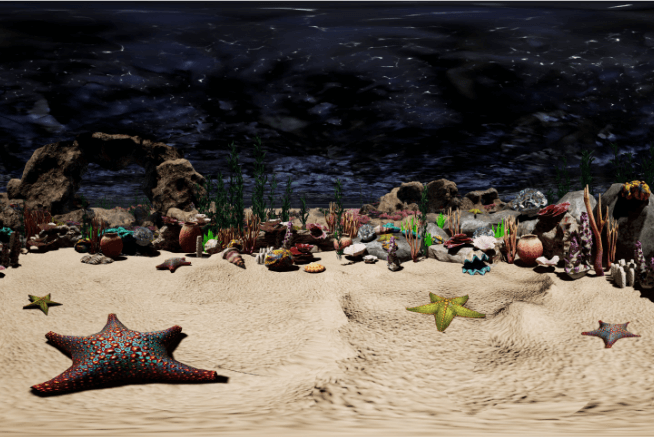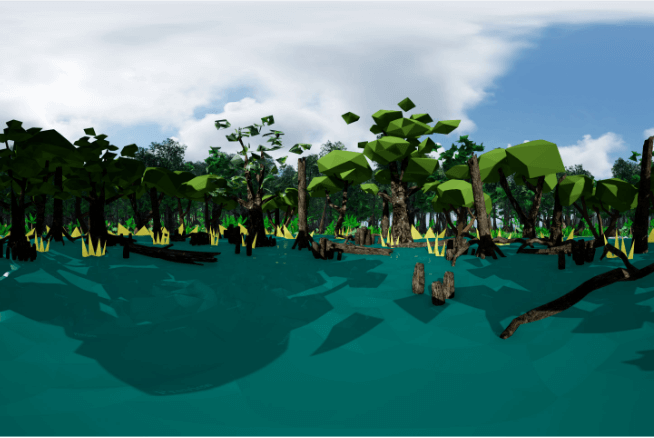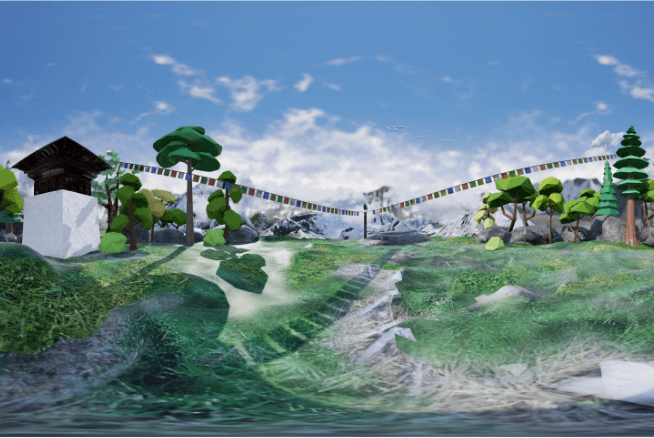This article is published in collaboration with MeshMinds.
“No one will protect what they don't care about; and no one will care about what they have never experienced”—David Attenborough
World Environment Day 2021 marked the start of the UN Decade on Ecosystem Restoration, a global push to heal our planet and reverse some of the damage we have already done. The UN Decade on Ecosystem Restoration runs from 2021 through 2030, which is also the deadline for the Sustainable Development Goals and the timeline scientists have identified as the last chance to prevent catastrophic climate change. A decade may sound like a long time, but scientists say that the next 10 years will count most in the fight to avert climate change and the loss of millions of species.

This year, it was not enough simply to tell people to have hope for the planet. Working with the United Nations Environment Programme, MeshMinds, a creative technology studio, took to Instagram to raise awareness and engage people about the issue, using augmented reality (AR).
With its Ecosphere AR campaign, MeshMinds developed AR experiences for UN Goodwill Ambassadors Dia Mirza, Alex Rendell, and Antoinette Taus that show the effects of human-caused degradation in the mountains of India, the mangroves of Thailand, and the coral reefs of the Philippines.
With MeshMinds’s “World Effect” filter, Instagram users can interact with the environment and learn about the problem and the individual action that can help combat the triple threat of climate change, loss of nature, and pollution that these ecosystems are facing. The filter also allows users to reimagine, recreate, and restore the three ecosystems.
Using the integrated “Face Effect” filter, the users can pledge to join UN’s #GenerationRestoration movement to conserve and restore ecosystems worldwide and share with the world what they will do to heal nature.

For the first time, the UN Goodwill Ambassadors for India, Thailand, and the Philippines were able to invite their followers on social media to use the cutting-edge AR filters on Instagram.
MeshMinds used Facebook’s AR creation software Spark AR to create the filters and collaborated with 3D animation studio Metamo Industries to create the 3D virtual environments.
Kay Vasey, founder of MeshMinds, said: “With so much uncertainty and anxiety in the world, it is important to offer hope to the surviving humans on this planet entrusted with being the custodians of the environment for future generations. Ecosphere AR uses the latest technologies, accessible by any smartphone, to educate people by showing them the effects of human-caused degradation of the environment.”
She added, “To offer hope, the experience also shows what nature should look like when left unharmed and invites people to answer the call to action. We employed the golden rule of ‘show, don’t tell’ and visual literacy techniques to power environmental storytelling. We are proud to have significantly increased the number of people based in Asia to join Generation Restoration with the support of the UN Goodwill Ambassadors.”
“Ecosystems around the world are in steep decline,” said Adam Hodge, regional information officer for the UN Environment Programme in Asia and the Pacific. “We need to turn this around and restore what’s been lost, but first we need people to be aware of the problem. The natural world underpins our societies and economies, so even if you can’t see the degradation, you’ll still be affected by it. Giving people the chance to experience ecosystem restoration from the comfort of their own home is a great way to raise awareness of the issue.”

The use of art and augmented reality builds on the work by MeshMinds for World Environment Day 2019 and 2020. Cumulatively, the AR experiences on Instagram have engaged more than 2.5 million people across 90 countries, covering every continent, bar Antarctica. The 2021 campaign has reached over half a million people so far, with one in 10 people who experienced Ecosphere AR, sharing a pledge with their friends and followers.
Head to Instagram to find Ecosphere AR hosted by Dia Mirza, Alex Rendell, and Antoinette Taus. Follow these three simple steps to activate Ecosphere AR:
- Using your back-facing camera, start by tapping on the sphere. You will be transported to the mountains of India, the mangroves of Thailand, and the coral reefs of the Philippines. Explore the degraded environment and look out for the #GenerationRestoration logo labeled “TAP HERE”. Through the magic of augmented reality, you will see the environment reimagined, recreated, and restored.
- While recording a video, try swapping to the front-facing camera by tapping on the camera icon on the bottom right of your screen with your other hand and say: “Join Generation Restoration” or, simply snap a photo.
- Add your video or photo to your Story and tag three friends to join #GenerationRestoration. Do not forget to add stickers to your posts too.
Together, we can raise our voices and inspire action to prevent climate catastrophe, stem the growing tide of pollution and waste, and halt biodiversity loss. Everyone must play a part. Act now.


